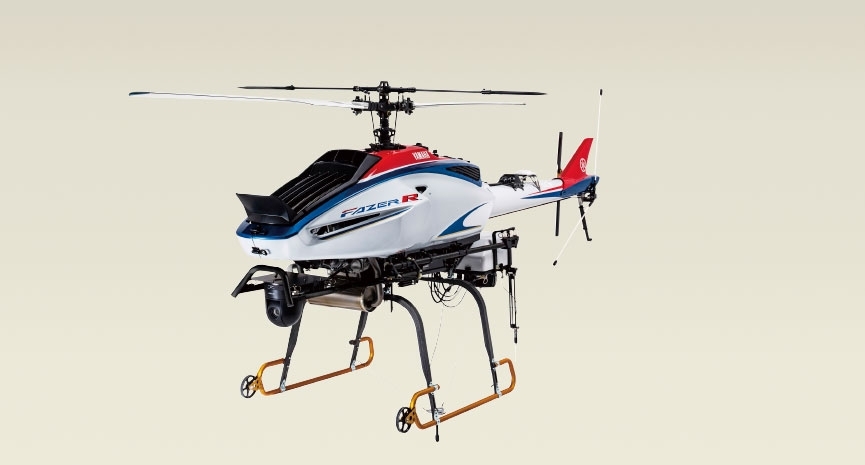FROM MAGAZINE: Astral Aerial aims for drone revolution in Kenya
From crop spraying to last mile deliveries, Astral Aerial Solutions is determined to map Kenya as a significant region in Africa, with the company’s plan of setting up the first drone port in the country, Shalini Nair reports.

From crop spraying to last mile deliveries, Astral Aerial Solutions is determined to map Kenya as a significant region in Africa, with the company's plan of setting up the first drone port in the country.
Don’t be startled if you see drones or unmanned aerial vehicles (UAVs) flying over Kenyan farms spraying pesticides. Though overburdened with old and new horticulture regulations, the hub of perishables has been a gateway to quite a number of landlocked countries in Africa and on the other hand, it is witnessing a radical technological revolution. Demonstrating the fact is the deal sealed between Astral Aerial Solutions and Japanese drone manufacturer Yamaha Motor Company for FAZER R G2 for crop spraying operations and last-mile deliveries during the seventh Tokyo International Conference on African Development (TICAD 7) held from August 28-30 in Yokohama, Japan.
Awaiting approvals from Kenya Civil Aviation Authority (KCAA), FAZER R G2 can carry up to 24 litres of pesticide in a single flight. The speed and capacity compared to manual crop spraying operations will minimise the time and add to cost savings for spraying of large-scale farms. In addition to this, the drone can carry out agricultural monitoring flights, where it carries a sensor that can identify areas with crop stress on the farms. This may be due to pest, disease or even weed infestation. Once located, the drone can quickly spray on those specific areas thus containing and eliminating the issues. This is of great benefit to perishable produce farmers. Such problems, when detected early could curtail losses in huge produce and profit. It is a multi-role drone, which can be used to service different cases, i.e. last-mile deliveries for humanitarian aid, medical deliveries, postal and e-commerce. It has a payload capacity of 35 kilogrammes, a range of 90 kilometres and a speed of up to 100 kilometres per hour. It can operate different kinds of sensors, e.g. RGB Camera, LIDAR (light detection and ranging) sensor, and multispectral sensors for agricultural mapping.
The affiliate of Astral Aviation has kept close communication with KCAA on the planned operations and is hopeful to obtain special permission to run demonstrations in a safe and secure manner.
 Kush Gadhia, business development director, Astral Aerial Solutions, comments, “With a well-co-ordinated and regulatory compliant operation, all that is required is a receiving party at the destination location to offload the ferried cargo. As long as the location of the destination is safe and secure enough for the offloading personnel and the drone, the operation should be easy to conduct. Even we see a future for drone ports, where cargo-handling operations will be set up. Astral is planning to set up the first drone port in Kenya, in the Northern Kenya region.”
Kush Gadhia, business development director, Astral Aerial Solutions, comments, “With a well-co-ordinated and regulatory compliant operation, all that is required is a receiving party at the destination location to offload the ferried cargo. As long as the location of the destination is safe and secure enough for the offloading personnel and the drone, the operation should be easy to conduct. Even we see a future for drone ports, where cargo-handling operations will be set up. Astral is planning to set up the first drone port in Kenya, in the Northern Kenya region.”
In hostile environments, drone technology offers a safer mode of transporting goods - it could be due to crisis or even challenges in policies across regions. The biggest advantage of drones is the reduced dependency on critical infrastructural availability.
Talking about the new project initiatives, Gadhia said, “One project that really stands out for me is the seed ball project, in partnership with Seed Balls Kenya. The project leverages drone technology to plant specially adapted acacia tree seedlings across different regions in the country. The aim is to curb deforestation by replanting acacia trees. The seeds are safely stored in a protective seed capsule (made of charcoal dust and nutritious binder) to prevent birds from eating them, and even it easily washes away during rain. Thus, using our drone and a specially designed seed box, we are set to disperse these seeds, allow nature to take its course in replanting the seeds, and thus create a positive environmental impact.”
The company operates five different drone models - three fixed-wing and two multi-rotor drones. Flyox drone is used for large cargo deliveries (up to 4 tonnes maximum take-off weight), with a range of 1,200 kilometres; senseFly eBee for agricultural monitoring can map 12 square kilometres in a single flight; Futura drone for long range dual mapping and monitoring, maps 1,000 acres in a single flight; and DJI multi-rotor for photography, inspections and 3D modelling.
Speaking about spreading wings to new markets, Gadhia observed, “Yes we are. Astral is involved in different applications of drones, e.g. agricultural spraying, emergency deliveries, and inspections. We have a few demonstration projects lined up for FRAZER drone to implement it for different applications. We are also open to any potential partners who would be interested in using the technology for their own applications and encourage them to get in touch with us for more discussions. When it comes to the oil and gas sector, we will be looking at Mozambique as a potential market for our drone solutions.”
Astral Aerial has also set up remotely piloted aircraft systems (RPAS) Training Academy Kenya, which is the first drone training institution in the East African Region.
This story was originally published in Logistics Update Africa's September - October 2019 issue.

